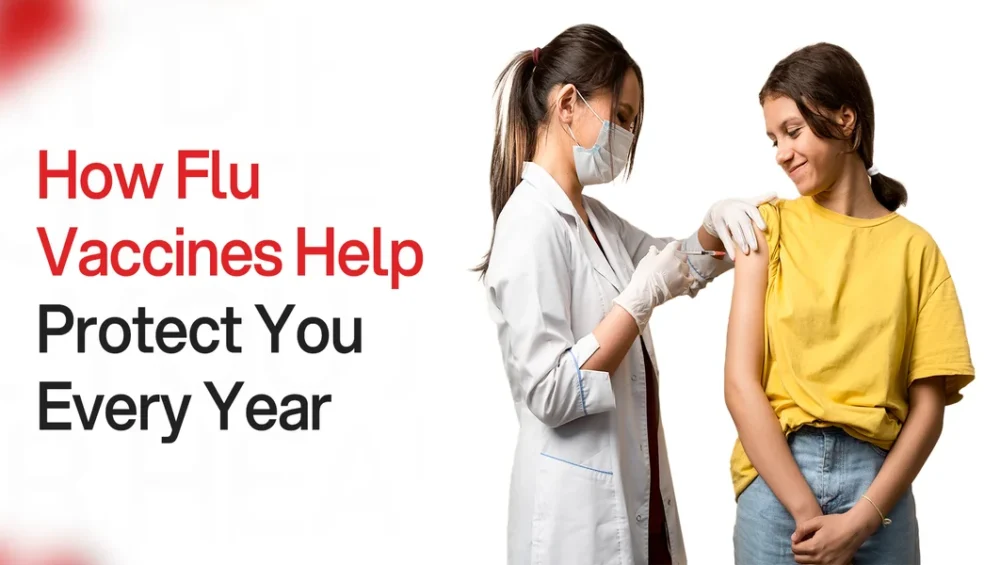Flu is more than a seasonal nuisance. It spreads quickly, weakens the body, and leads to serious illness in children, older adults, and people with health problems. The virus changes often, making it hard for natural immunity to keep up.
The flu vaccine is the best defence. It trains your immune system to fight the latest strains, lowers your risk of severe illness, and helps protect people around you.
The World Health Organisation estimates that flu causes up to 650,000 deaths yearly, but vaccines prevent thousands of hospital stays and save lives.
This guide explains how flu vaccines protect you yearly, why annual vaccination is vital, and what you should know before your next jab.
What Is a Flu Vaccine?
A flu vaccine is a simple jab that protects you from seasonal influenza. It works by teaching your immune system to recognise the virus and fight it off before it makes you very sick. Doctors recommend it each year because flu viruses keep changing.
Most flu vaccines target influenza A and B, the main types that cause outbreaks worldwide. Global health experts review these strains before every flu season to ensure the vaccine is updated. That is why the flu jab is designed to match the strains most likely to spread in the coming year.
How Flu Vaccines Protect Your Body
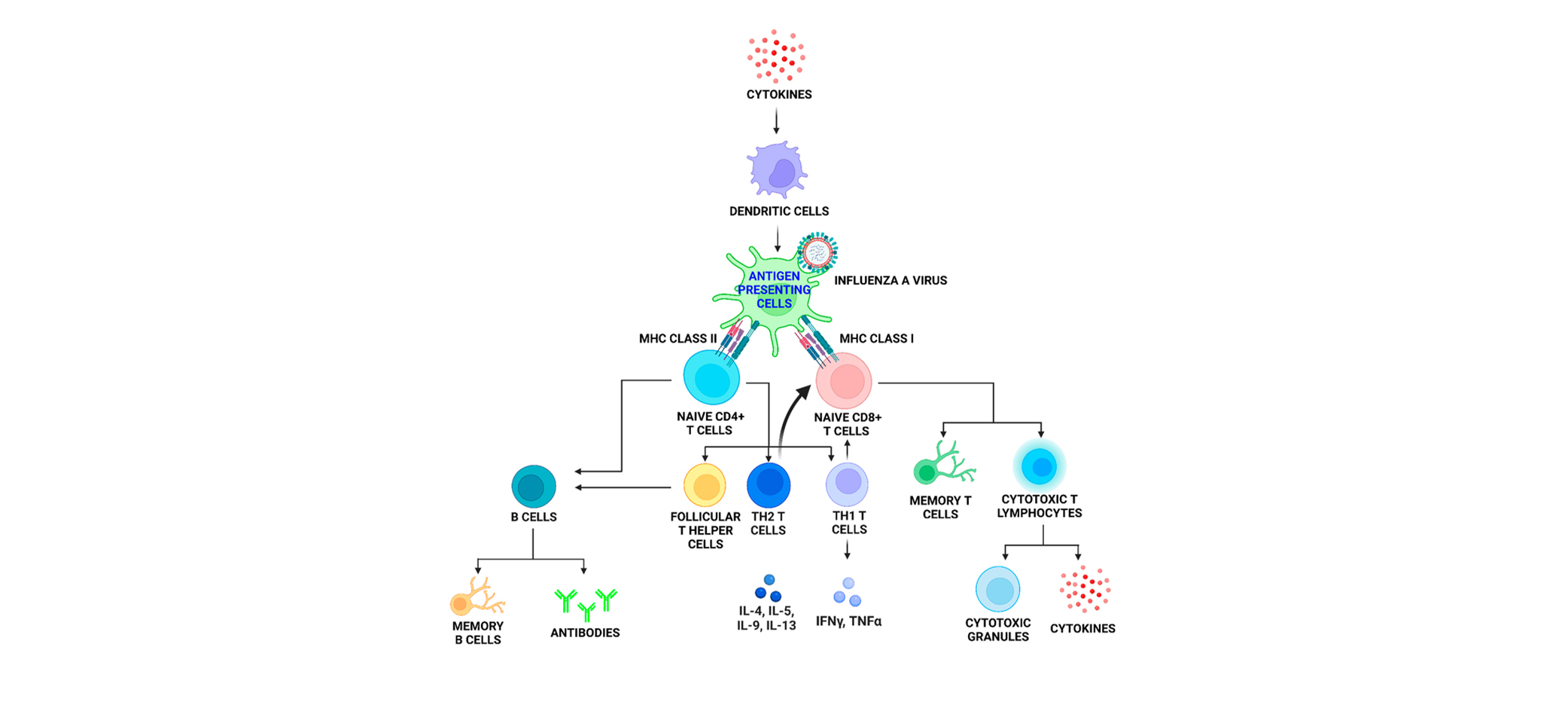
Getting a flu jab is one of the easiest ways to stay healthy during flu season. It protects you and helps prevent the flu from spreading to your family and community.
How the flu vaccine trains your immune system
A flu vaccine gives your body a small, safe flu virus sample. It’s not alive, so it can’t make you sick. But it teaches your immune system what the flu looks like.
Your body then builds antibodies, tiny protectors that attack the flu fast. It also makes memory cells that remember the virus for next time. Together, they help prevent the flu before it can cause serious illness.
You can’t catch the flu from the vaccine. The jab only contains weak or inactive parts of the virus, not the full germ.
How soon flu vaccine protection start
Your body needs a little time to build its shield. It takes about two weeks after the jab for your immune system to fully prepare.
During this time, your body is training to spot and destroy the virus quickly. Once the antibodies are ready, they stand guard all season long.
How long flu jab protection lasts
The flu vaccine protects you for several months, covering the main flu season in autumn and winter.
After that, antibody levels slowly fade. Since flu viruses keep changing, last year’s protection might not work for new strains. That’s why doctors recommend a new jab each year to keep your defences strong and up to date.
Flu Vaccine Effectiveness and Benefits
Getting a flu jab isn’t just a yearly routine; it’s a smart choice for your health and community. Here’s why the flu vaccine matters and how it protects you and those around you.
How well do flu vaccines work?
Flu vaccines don’t work 100% of the time, but they work well enough to save lives. Each year, protection rates change, usually between 40% and 60%. That means out of every 10 people who could get the flu, about half are protected because of the vaccine.
Even when the match isn’t perfect, the jab still helps. It prevents thousands of serious flu cases and reduces hospital visits by 40%. Fewer people end up in hospital beds, which keeps our healthcare system from getting overwhelmed.
Why it's important to get the jab
Flu jabs do more than stop you from catching the flu. They make symptoms milder if you do get sick. You recover faster, miss fewer days of work or school, and avoid serious problems.
The numbers speak clearly. In adults, flu jabs reduce the chance of needing intensive care by 82%. In children, they cut flu-related deaths by almost two-thirds. They’re especially important for kids, pregnant women, and older adults, people the flu hits hardest.
Protecting more than yourself
Getting vaccinated protects your family, friends, and community. When more people get the jab, the flu spreads less. That’s called herd immunity; it keeps everyone safer, especially those who can’t get vaccinated themselves.
Each year, A simple shot can make a big difference for you and everyone around you.
Who Should Get the Flu Vaccine?
The flu vaccine is free on the NHS for those most at risk. It’s offered every year in autumn or early winter.
Who is eligible?
- Adults aged 65 and over: Including those who will be 65 by 31 March 2026.
- Pregnant women: At any stage of pregnancy.
- Children aged 6 months to 17 years: Especially those with certain long-term health conditions.
- Adults aged 18 to 64: With conditions like heart, lung, kidney, or liver disease; diabetes; neurological conditions; or weakened immune systems.
- Residents of care homes: For older adults.
- Carers: Including those receiving Carer’s Allowance or caring for someone at high risk.
- Frontline health and social care workers: Through their employer.
Learn more about free flu jab eligibility in Manchester to check if you qualify.
Types of Flu Vaccines Available
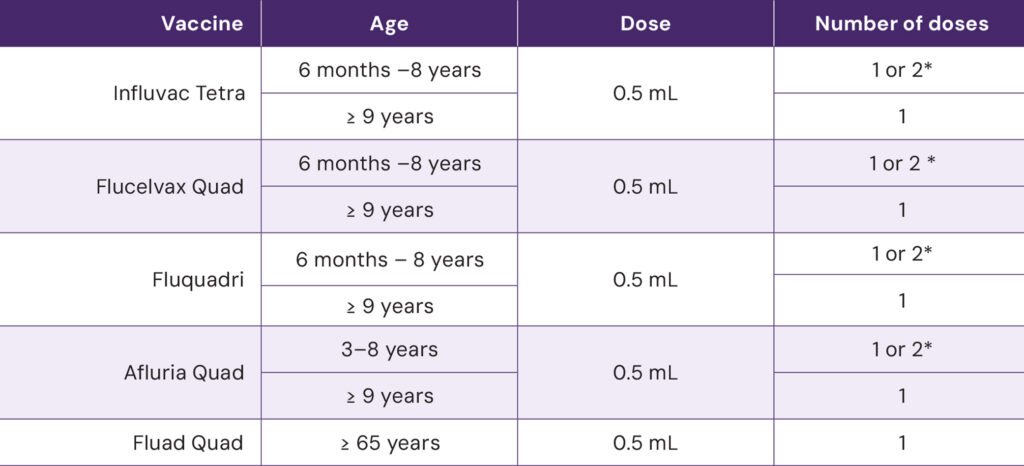
Different flu vaccines are made to suit other people. The best one for you depends on your age, health, and any allergies. Here’s a clear look at the main types and how each protects you.
Inactivated (flu jab)
The inactivated flu vaccine is the most common type. It contains killed virus particles that cannot cause flu. Your immune system responds by making antibodies to fight future infections.
Live attenuated (nasal spray)
This vaccine contains a weakened form of the flu virus. It’s given as a nasal spray, not a shot. It can’t cause serious illness, but it helps build strong, lasting immunity. It’s often given to children and young adults.
Recombinant and cell-based vaccines
Recombinant vaccines are made without using eggs, which helps people with egg allergies. Cell-based vaccines are grown in mammalian cells instead of eggs. Both types allow faster production and can target the latest flu strains.
Trivalent vs. quadrivalent (3-strain vs. 4-strain)
Trivalent vaccines protect against three strains of flu. Quadrivalent vaccines add one more B strain for wider protection. Most flu vaccines today are quadrivalent, covering more people.
High-dose and adjuvanted vaccines for older adults
Older adults need extra protection because their immune response is weaker. High-dose vaccines contain more active ingredients to boost immunity, and adjuvanted vaccines include an added substance that helps the body respond better.
Safety, Side Effects, and Myths
Flu vaccines undergo strict testing before use and are constantly monitored to ensure their safety for everyone. Most people have no problems after the jab; mild effects fade quickly.
Common and mild side effects
You may feel a little soreness where the needle went in, or you may feel slightly tired or warm. These are normal signs that your body is building protection. They usually disappear within a day or two.
Serious side effects (rare)
Serious reactions are extremely rare. A severe allergic reaction can happen, but it is treatable right away. The NHS tracks all vaccines to ensure they remain safe for everyone.
Myths and facts
You can’t get the flu from the flu jab, it doesn’t contain a live virus. It doesn’t weaken your immune system either. While it won’t stop colds, it does lower your chance of getting very sick from the flu.
Best time to get the flu jab
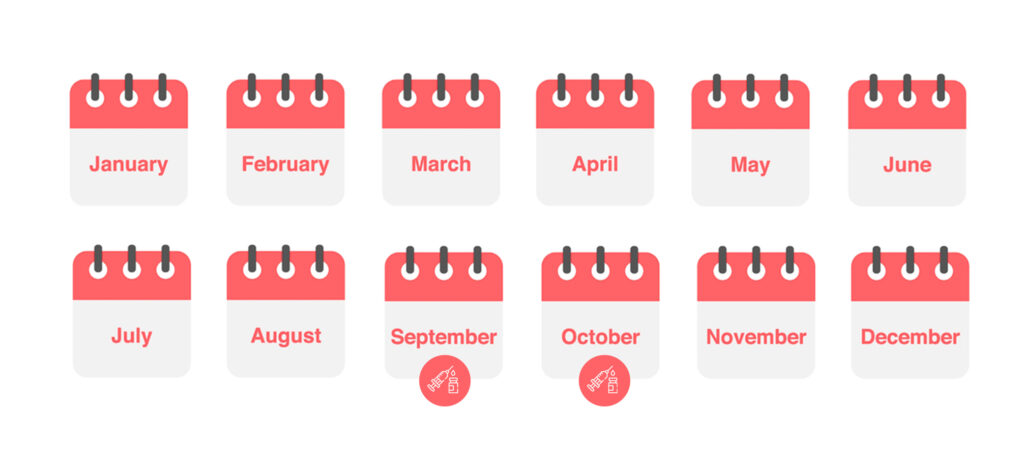
Flu season usually peaks between December and March in the UK. The NHS recommends getting vaccinated in September or October. Early vaccination gives your immune system time to build full protection.
How Flu Vaccines Are Made
Flu vaccines change every year to match the strains spreading around the world. Scientists track flu activity and pick the strains most likely to make people sick. This careful choice helps the vaccine protect you better.
Most vaccines are made using eggs, where flu viruses are grown, collected, and then inactivated so they can’t make you sick. Newer methods use cells or recombinant technology, which makes vaccines faster and safer for people with egg allergies.
Every vaccine batch is tested for safety and effectiveness before reaching clinics or pharmacies. Regulators ensure that each shot is safe for everyone who needs it.
Why Flu Vaccines Matter: Cost, Access, and Community Health
The NHS provides free flu jabs to those at higher risk, such as adults over 50 with health conditions, pregnant women, and healthcare workers. Rules can differ in other countries, so check local guidance.
Flu vaccines are easy to get. You can visit GP surgeries, pharmacies, hospitals, or community clinics. Quick access means more people stay protected during flu season.
Vaccines save money and lives. They cut hospital visits, reduce treatment costs, and help people stay at work and school. Every year, higher vaccination rates mean bigger savings for everyone.
Some people avoid the jab due to myths, worries about side effects, or doubts about effectiveness. Clear advice from trusted sources can remove these fears.
Getting vaccinated protects everyone. High coverage lowers flu spread, keeps vulnerable people safe, and helps entire communities stay healthy.
What If You Get the Flu After Vaccination?
You can still catch the flu after vaccination. The virus may change, or your body may not respond fully. This does not mean the jab failed; it still provides important protection.
The vaccine helps reduce the severity of illness. Symptoms are usually milder, and the risk of hospitalisation or complications is much lower. Even partial protection makes a big difference for your health.
See a doctor if symptoms are severe or last longer than expected. High fever, difficulty breathing, or persistent chest pain are warning signs. Early treatment can prevent complications and help you recover faster.
Why Your Annual Jab Matters
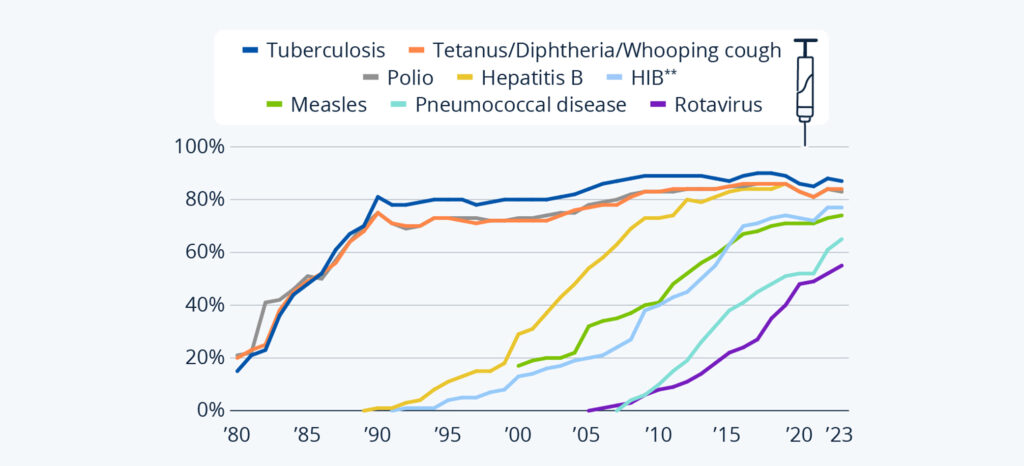
Flu viruses change every year, so last season’s protection may not work today. Getting your flu jab each year keeps your immune system ready.
A vaccine lowers your chances of getting sick, spreading the flu, or ending up in the hospital. Even partial protection helps protect you, your family, and your community. Herd immunity shields the most vulnerable people.
Flu vaccines are safe for most adults and children. Although you might feel sore or tired for a day, serious reactions are extremely rare. The benefits far outweigh the small risks.
How to get vaccinated?
- Book online: Via the NHS website or the NHS App.
- Call 119: For assistance with bookings.
- Visit a local pharmacy: Some offer walk-in appointments.
Remember, getting vaccinated protects you and helps prevent the spread of flu in your community.
Conclusion
Getting your flu vaccine is quick, easy, and powerful. It cuts your chances of getting sick, avoids hospital visits, and protects your health.
A flu jab isn’t just about you. It keeps your family, friends, and community safe, too. By vaccinating every year, you stay protected against new flu strains.
Stay well, stop the spread, and make this flu season safer.
FAQs
Can you get flu and COVID-19 vaccines together?
You can receive the flu jab simultaneously as a COVID-19 vaccine. Health professionals ensure both vaccines are safe when given together. This convenience helps people stay protected without extra appointments.
Why is the flu jab important for staying healthy?
The flu vaccine keeps you from getting sick and reduces serious complications. It protects your family, friends, and community, too. By vaccinating yearly, you stay healthy and stop the flu from spreading.
What happens during a flu vaccine appointment?
Your flu vaccine appointment is quick and easy. A healthcare professional will check you, explain the vaccine, and give the jab. You’ll stay a few minutes afterwards for safety before leaving.
What should you avoid after getting a flu jab?
After a flu jab, avoid rubbing or pressing the injection site. Rest and drink water if you feel sore or tired. Most people can safely continue their normal activities.

